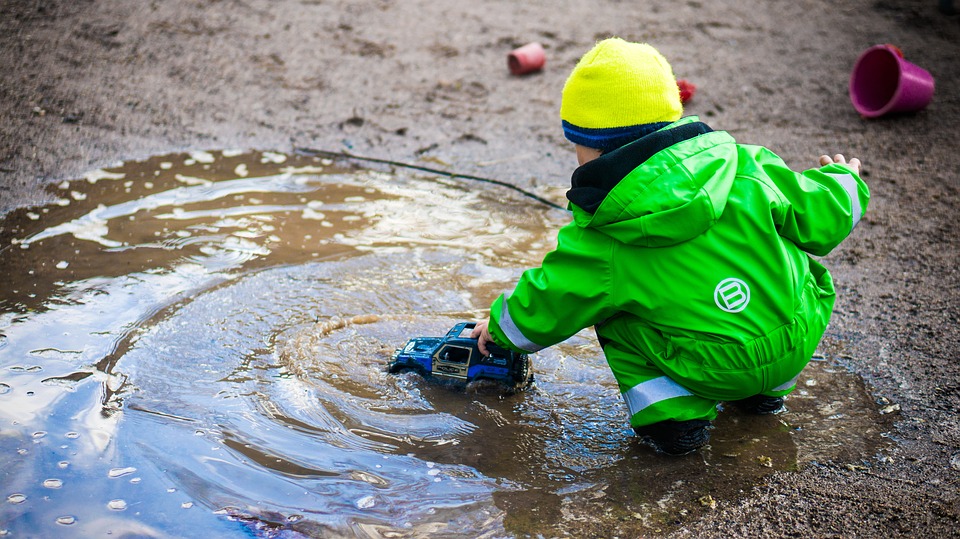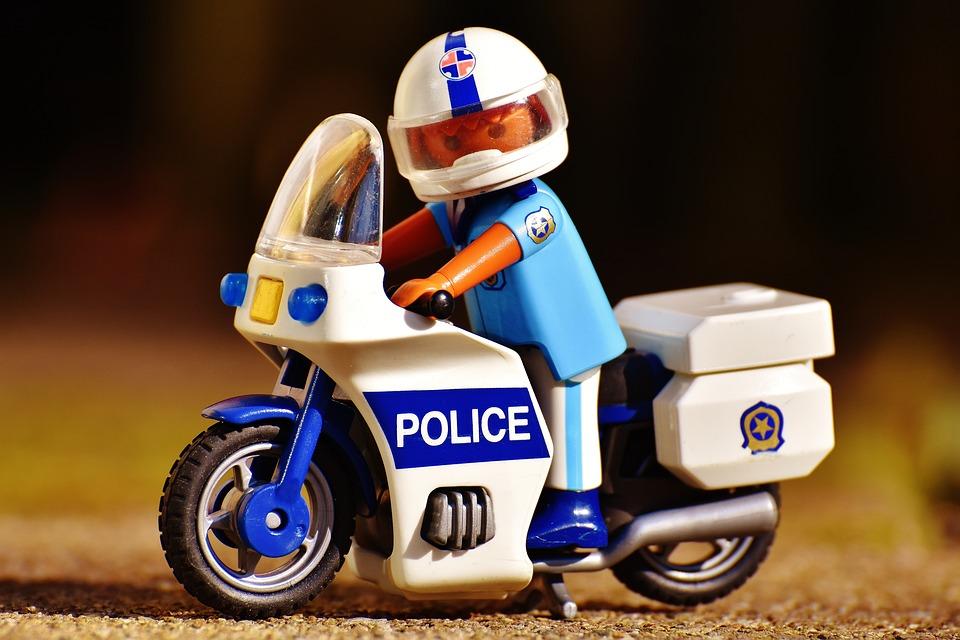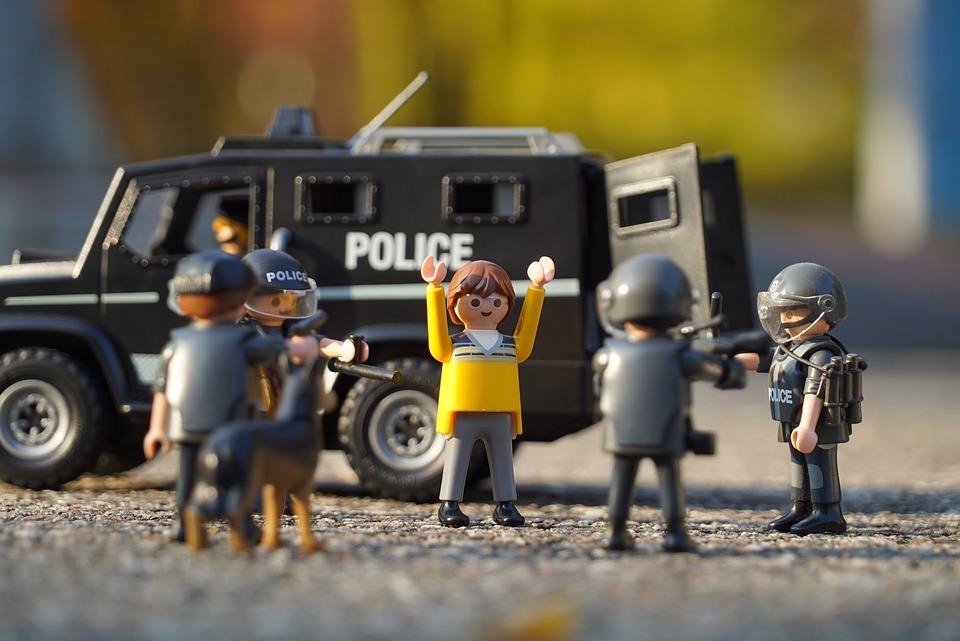

No ambiguity in that title. All organic. Straight-up prospect highlighting that some humans are born to be a cop. Now, there may not be any definitive DNA markers indicating any human’s predisposition to law enforcement, but soon after entry into the world, the building blocks are at our disposal. Some people capitalize on destiny from the starting gate while others deliberate before doing plotting their life course.
Commonly, we refer to one’s station in life as “a calling”: a strong inner impulse toward a particular course of action especially when accompanied by conviction of divine influence (Merriam-Webster).
“Divine influence” sort of hints at being born with some sort of cop gene. I’ll embrace that theory.
For me it was around age five, when I felt and started to breath such a calling. Lord knows there was not a day in Brooklyn, NY, where the hustle, bustle, and din of metropolis life didn’t come with the whoop-whoop of police sirens and the rotating flash of an NYPD cruiser’s rooftop lights or a NYPD beat cop walking while twirling a nightstick. I watched. I consumed it all. I wanted to be in that role.
Family indoctrination always underscored the need to “keep your nose clean” so that the best things in life are within reach. Naturally, good behavior and stellar character traits are necessary to gain traction toward a career as a cop. In the event I somehow colored outside the lines, I knew the Roman Catholic nuns who taught me through my entire elementary school years would summon me to pay the piper.
Even though temptations were all around me and the devil had minions doing his bidding and recruiting, I managed to maintain a conservative upbringing in New York City.

Heck, I was a kid playing with G.I. Joe while fantasizing about saving the world. My brand of cartoons encompassed caped-crusader “Underdog” and armed caped crusaders “Courageous Cat and Minute Mouse” and “Deputy Dawg” et al.
Shortly thereafter, I grew up fanatically watching “Adam-12” shortly after it first aired in 1968; I was in kindergarten when it debuted. My TV diet consisted of “Police Story” and “Dragnet” and “S.W.A.T.” and “The Blue Knight” and “The New Centurions” and “The Rookies.”
Years into more maturity, I watched pretty much anything cop-based: “Miami Vice” and “NYPD Blue” and, more contemporarily, “Blue Bloods.”
Known as the “Grand Master of Crime and Police” stories, I devoured every book written by former LAPD cop-turned-famed-police-author Joseph Wambaugh. Nowadays, Michael Connelly is my go-to for a great cop novel.
Of everything, there was nothing better than knowing cops were positioned to save the world. I wanted that job! I would do whatever I could to acquire that badge of honor. It took me far longer than traditional time—recurrent cancer stalled me until many years later.
Those who know me well enough (perhaps even some National Police Association readers) know that I marvel over things bearing irony. The article you are reading was outlined two days ago, and as I started tapping the keyboard yesterday morning, a YouTube video spontaneously appeared in my news feed. The circa-1975 video is a vintage documentary chronicling the upbringing and life of a NYPD cop named Stephen Gilroy, badge #13082, who was gunned down in the line of duty on January 19, 1973 (47 years ago yesterday). Officer Gilroy died doing the job he loved. Officer Gilroy’s ancestry emigrated from Ireland and settled in Greenpoint, Brooklyn…my hometown, where as a young boy I admired NYPD cops and harbored one-day feelings of joining the NYPD family.
Besides sharing the same first name, I also grew up with the exact same objective as Officer Stephen Gilroy which, in his words, was, “…to be the cop who is there to save.”
I grew up with some of Officer Gilroy’s family—still maintain contact with his niece. I played where Officer Gilroy played when he was a youngster, at the same public parks. I worshipped at the same neighborhood church. We both admired the NYPD’s 94th Precinct cops doing the job.
As the YouTube video emphasizes, my hometown was a place where youngsters were mindful of not getting injured playing sports, because injury could mean the end of a potential career as a NYC cop or fireman—Gilroy’s father served as a NYC fireman. As Officer Gilroy’s brother said, “It was as natural to become a cop, growing up here, as anything else. In fact, it was the most natural thing.”
Getting hurt playing sports or horsing around on the streets in Brooklyn meant “you wouldn’t make the cops,” explained Officer Gilroy’s family. I had that same lecture and mentality while growing up.
The most natural thing I desired throughout my life was to be a cop; it always seemed natural…from as far back as I could remember.
I always related to a conservative outlook, even though I could do nothing about cancer infiltrating/prolonging my seemingly childhood-born law enforcement dream.
Nowadays, as a researcher and avid reader (especially of all things law enforcement), I hear young folks aspiring to a career as a cop, many citing the “great benefits” as a solid reason to join the force. Conversely, I also listen to others attest how they’ve always wanted to be a cop; ”since I was a kid,” they’d profess. Often, the latter has/had one or more family members serving in a police uniform. Officer Gilroy’s grandfather was a NYPD cop as were his grandfather’s two brothers, exemplifying law enforcer lineage and blue bloodlines. Whether it be family influence or learned behavior or the organic nature of wanting to save the world from the very get-go, the ranks can always use fresh physicality, psychologically-sound minds, and altruistic candidates possessed of integrity and the courage to pin the badge.

Even after many years on the police force, some cops harbor angst from the job and its political strings while others chomp at the bit to chase down the Jokers and Mansons and white-collar criminals. As our society festers with anti-cop hatred and misguided protests favoring criminal elements and ridiculous bail reform measures, police officers make every attempt to instill law and order. Some take a beating on the streets while citizens whip out cell phones and record as justice gets battered.
Given the realms of “divine influence” and fulfilling “a calling,” both of which we explored above, I thought I’d type the words born to be a cop to see what, if anything, would return in a Google search. Well, my exact search words came up as a New York Post article titled “Born to be a cop.” The piece memorialized 26-year-old MIT Police Officer Sean Collier who was fatally shot when he came upon Tamerlan Tsarnaev and Dzhokhar Tsarnaev, the two Russian-born brothers who infamously orchestrated the 2013 Boston Marathon bombing.
MIT police Chief John DaFava said “Sean was one of these guys who really looked at police work as a calling. He was born to be a police officer.” Anecdotal or otherwise, Officer Collier evidently gave the impression that he had it in him from the start. The Collier family added, “Our only solace is that Sean died bravely doing what he committed his life to—serving and protecting others.”
I suspect there are many who from a young age aspired to be cops. Similarly, those who achieved that rite of passage and went on to fulfill that sacred oath surely know the ultimate value of human existence, especially after witnessing fleeting moments before authoring police reports involving death.
More irony (or basic career calculus) is the fact that my very first call as a rookie cop involved a deceased five-year-old boy and my final call as a senior police officer included a 92-year-old woman who was near-death and hemorrhaging profusely. Although I didn’t think she would make it, she survived.
How did I find out about her outcome? Her son, a retired NYPD police officer who lived in a neighboring city in Florida, visited my police chief and conveyed his gratitude for our officers saving his mom. I met the woman’s son; he shook my hand, and through tears said he was honored and proud to learn that a cop kneeled next to his mom on the floor, held her brittle hand, as city paramedics exhausted every measure to save her life. He and I became good friends; I appreciated having been in the police role and he appreciated me being at his mom’s residence at 04:05 hours.
How did I know to respond to her bottom-floor apartment at that hour? After falling and bleeding from a broken arm bone which pierced through her flesh, it took her four hours to drag her frail and bloodied body to the front door…from where she repeatedly called “Help!” until someone heard her and called 9-1-1. (She could not reach her counter landline once she had fallen.) The images of her blood trail leading to the apartment door threshold remain in my psyche.
As Officer Gilroy’s widow stated in post-death interviews regarding her husband’s life as a cop, his many “brushes with death” made him appreciate life more. I believe we can all attest to that life philosophy, not only because of police culture but especially due to self-sacrifice principles sworn to at the onset of the job. I imagine most cops can relate to that. I know I can. Happy to be here to write these words about a profession I admired since I were a kindergartener observing cops of the NYPD patrol my blocks (streets), providing an example which would eventually culminate in my life’s desire.
If there were a human gene earmarking a human’s destiny to be in police uniform, I can envision it as blue-hued molecules. A kid can dream, can’t he?